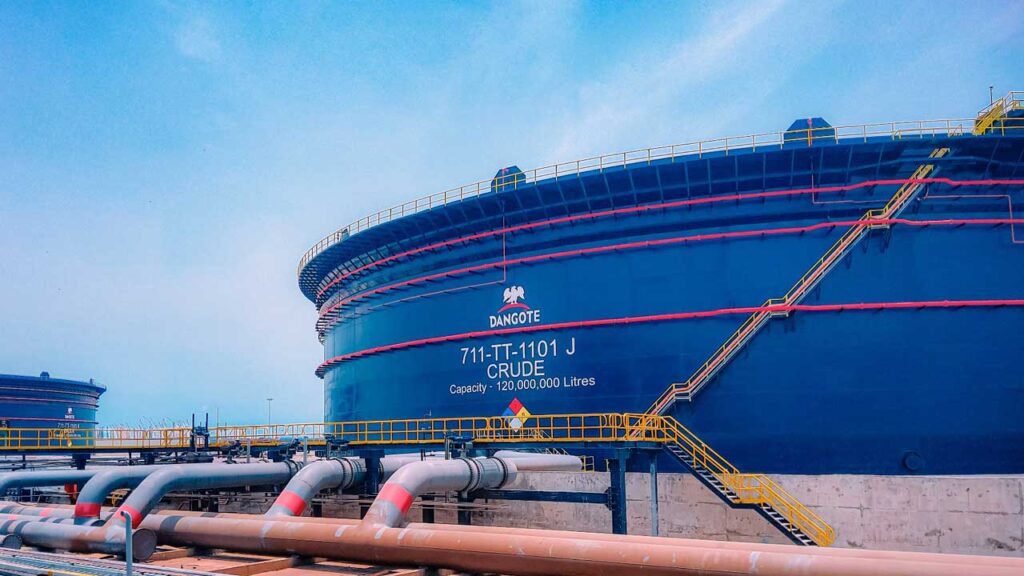Dangote Refinery, a 650,000 barrel-per-day facility, sets the stage for Nigeria’s economic renewal.
Dangote Refinery, Africa’s largest refinery, commences operations, marking a strategic move to reduce Nigeria’s dependence on fuel imports and stimulate economic growth.
Dangote Refinery, billed as Africa’s largest refinery, begins production, marking a vital step toward fuel self-sufficiency and economic prosperity in Nigeria. The commencement of production at Dangote Refinery heralds a new era for Nigeria’s economic landscape, according to the company. As the largest single-train refinery in Africa, this 650,000 barrel-per-day facility has launched operations to mitigate the country’s dependence on fuel imports. The initial run will be for the production of diesel and aviation fuel before moving on to petrol output.
Dangote Refinery – Refined products, gasoline, diesel, kerosene, and aviation jet
Despite initial delays, the project created by Aliko Dangote was supposed to start in June of last year, the recent delivery of six million barrels of crude signals a step towards starting the project. With a focus on producing diesel and aviation fuel initially, the refinery envisions a broader impact on Nigeria’s fuel self-sufficiency. “Dangote Petroleum Refinery can meet 100 per cent of Nigeria’s requirement of all refined products, gasoline, diesel, kerosene, and aviation jet, and also have surplus of each of these products for export,” the company said in a statement.
Strategic Vision
Nigeria, a prominent oil producer in Africa, has grappled with the drain on foreign exchange due to fuel imports and subsidies. Dangote Petroleum Refinery emerges as a solution, capable of meeting 100% of the nation’s refined product needs and possessing a surplus for export, according to the company. Situated on 2,635 hectares of the Lekki Free Zone, and representing a USD 19 billion investment, the refinery underscores a commitment to economic transformation. As President Bola Tinubu implements economic reforms, the refinery’s production launch aligns with the vision of building long-term growth and attracting foreign investment.
Nigeria’s economy struggles
While fuel prices initially experienced a surge and the naira faced a sharp devaluation, President Tinubu urged patience, emphasizing the long-term benefits of the reform program.
As Dangote Refinery starts production, it stands as a beacon for Nigeria’s journey toward fuel self-sufficiency. Additionally, the simultaneous initiation of production at the Port Harcourt refinery reinforces the country’s commitment to refining capacity and economic resilience.
For more energy business and trade news, visit our dedicated archives.
